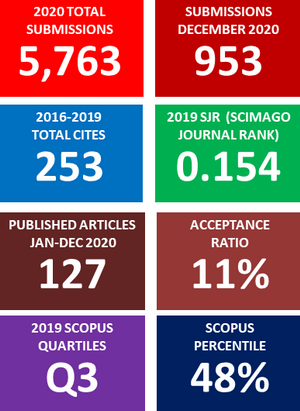Genetic and Gestational Surrogacy: an Overview
Keywords:
Surrogacy, in vitro fertilization, genetic and gestational, surrogacy ethics, adoptionAbstract
Surrogacy is a method in which a woman bears a child for another woman. The indications for treatment include absent uterus, recurrent miscarriage, and repeated failure of in vitro fertilization (IVF) and certain medical conditions. It also defines the process in which a woman gestates a fetus, gives birth to a child, and then relinquishes her parental rights to another couple. This third party relationship to the intimate process of producing children is not a contemporary concept and has been recorded in our history in several forms. In colonial America, children were sent to other childless families to learn trades or provide extra help to the family. More recent forms of surrogacy in the U.S. are adoption, fostering, and step-parenting. In this review, various techniques, law issues, and drawbacks of surrogacy are synchronically described and postulated.
Downloads
Metrics
References
PR Brinsden. Gestational surrogacy. Hum. Reprod. Update 2003; 9, 483-91.
WH Utian, L Sheean, JM Goldfarb and R Kiwi. Successful pregnancy after in vitro fertilization and embryo transfer from an infertile woman to a surrogate. N. Engl. J. Med. 1985; 313, 1351-2.
ACOG Committee Opinion. Number 397. Surrogate motherhood. Obstet. Gynecol. 2008; 111, 465-70.
D Brahams. Warnock report on human fertilisation and embryology. Lancet. 1984; 2, 239.
WT Wells. Warnock report on human fertilization and embryology. Lancet. 1984; 2, 531-2.
PR Brinsden, TC Appleton, E Murray, M Hussei, F Akagbosu and SF Marcus. Treatment by in vitro fertilization with surrogacy: experience of one British centre. Br. Med. J. 2000; 320, 924-9.
V Soderstrom-Anttila, T Blomqvist, T Foudila, M Hippeläinen, H Kurunmäki, R Siegberg, M Tulppala, M Tuomi-Nikula, S Vilska and O Hovatta. Experience of in vitro fertilization surrogacy in Finland. Acta. Obstet. Gynecol. Scand. 2002; 81, 747-52.
K Denys, I Stuyver and M Dhont. High tech surrogacy in Flanders. Tijdschr. Geneeskd. 2007; 63, 1021-9.
JE Chliaoutakis, S Koukouli and M Papadakaki. Using attitudinal indicators to explain the public's intention to have recourse to gamete donation and surrogacy. Hum. Reprod. 2002; 17, 2995-3002.
A Benshushan and JG Schenker. Legitimizing surrogacy in Israel. Hum. Reprod. 1997; 12, 1832-4.
P Trowse. Surrogacy: is it harder to relinquish genes? J. Law Med. 2011; 18, 614-33.
I Goold. Surrogacy: is there a case for legal prohibition? J. Law Med. 2004; 12, 205-16.
ZF Khalaf, A Shafiabadi and M Tarahomi. Psychological aspects of surrogate motherhood. J. Reprod. Infert. 2008; 9, 34.
D Brahams. Surrogacy, adoption, and custody. Lancet. 1987; 4, 8-17.
S Dermout, H van de Wiel, P Heintz, K Jansen and W Ankum. Non-commercial surrogacy: an account of patient management in the first Dutch centre for IVF surrogacy, from 1997 to 2004. Hum. Reprod. 2010; 25, 443-9.
O van den Akker. The importance of a genetic link in mothers commissioning a surrogate baby in the UK. Reprod. 2000; 15, 1849-55.
A Sue. Meinke Surrogate Motherhood: Ethical and Legal Issues National Reference Center for Bioethics Literature. The Joseph and Rose Kennedy Institute of Ethics, Box 571212, Georgetown University, Washington DC, p. 20057-1212.
R Ber. Ethical issues in gestational surrogacy. Theor. Med. Bioeth. 2000; 21, 153-69.
A Brief Overview Regarding Religion and Infertility, Available at: http://infertilityanswers.typepad.com, accessed August 2009.
Religions Oppose Surrogacy, Available at: www.ucanindia.in, accessed January 2012.
Downloads
Published
How to Cite
Issue
Section
License
Copyright (c) 2012 Walailak University

This work is licensed under a Creative Commons Attribution-NonCommercial-NoDerivatives 4.0 International License.









